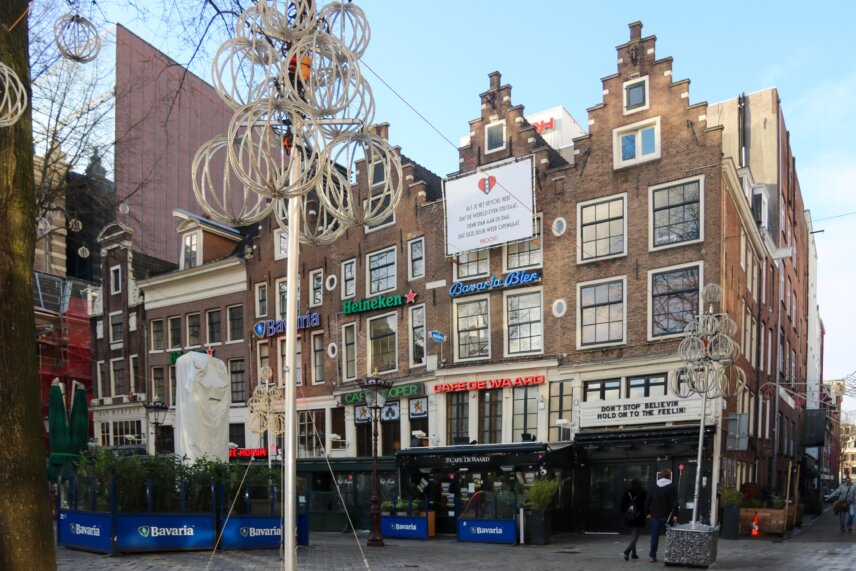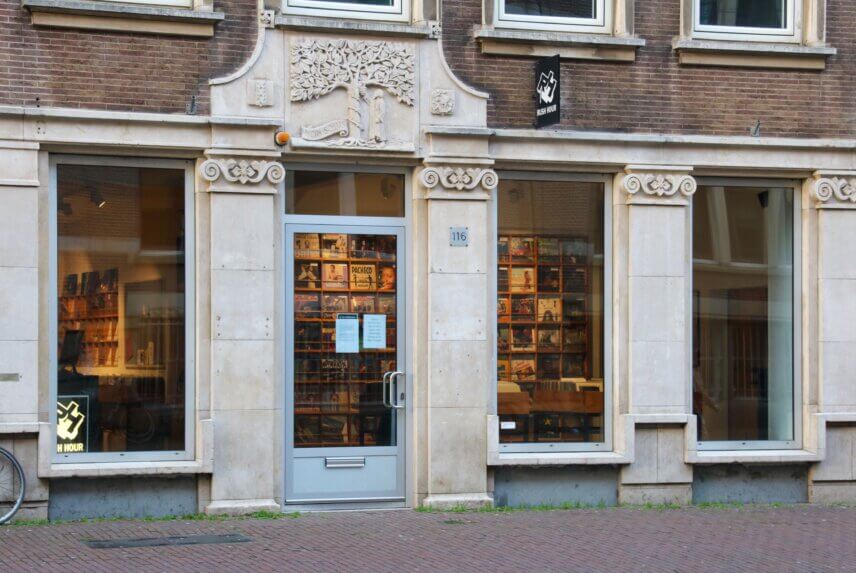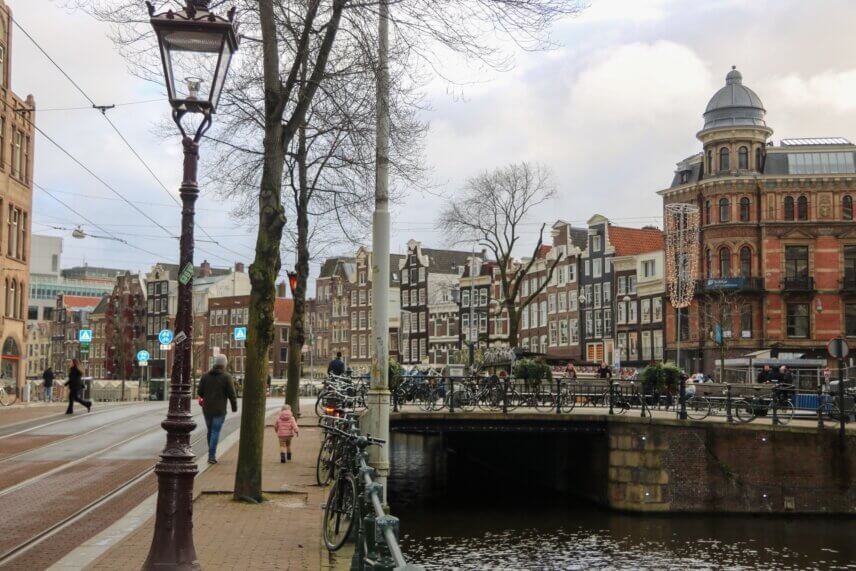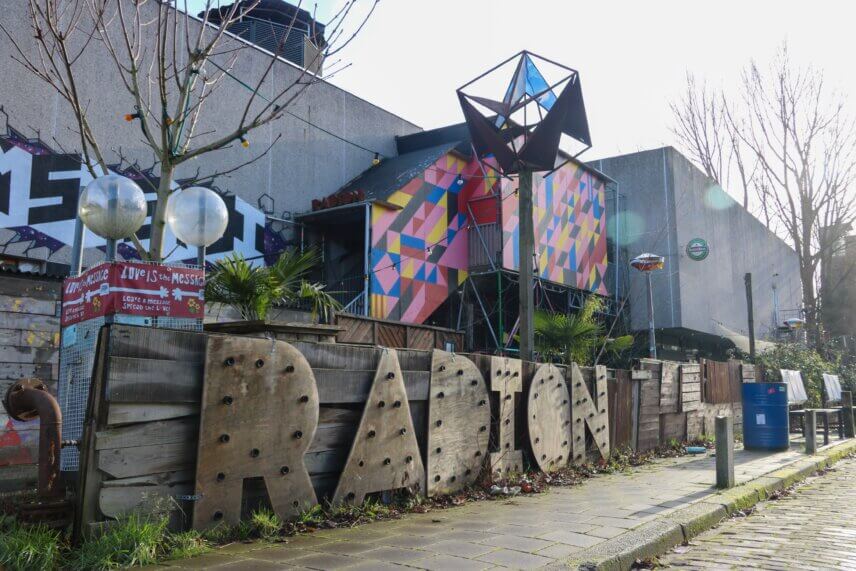
With the Dutch dance music industry, which has been closed for twelve months, still lacking cultural recognition from the government, many of those who rely on it are struggling to keep their heads above water. However, since things were far from perfect even before the COVID-19 pandemic, experts see this as an opportunity to provoke change.
Looking back one year, the Dutch dance music industry flourished like never before. For the seventh year in a row, more than 50% of DJ Mag’s top 10 DJs were from the Netherlands. Dance music was the thriving force behind Dutch music exports, accounting for 75% of the total value and surpassing the €150 million mark for the first time. 391 festivals attracted 23 million people each year (6 million more than the total population), with around 90% specialising in electronic music. No other country had more per capita. The Amsterdam Dance Event alone, the world’s largest electronic music conference, had a record 400,000 visitors in 2019. In Amsterdam, 1 in 14 jobs was related to dance music.

On March 15, an entire industry that had been built up over 25 years fell silent and has remained silent ever since – the only economic sector throughout the country. DJs who depend on live performances are particularly hard hit. According to a survey by the UK’s independent body for music creators, 82% of artists earn less than £200 a year from streaming.
[advert]
During the summer of 2020, some nightclub operators were briefly able to offer an alternative programme, but when stricter measures were announced, they too had to close their doors again. 95% of festivals were cancelled.
At ID&T, the organiser of Mysteryland and Awakenings, 40% of employees have lost their jobs as a result of the pandemic. With the money Frits Zanen, owner of the Amsterdam nightclub RADION receives from the government, he has been able to maintain most of his team, which he will need once he’s allowed to reopen: “It’s not enough so far, but it’s enough to at least look into the future with a little bit of confidence.”
Lack of political support
According to Prime Minister Mark Rutte, a reopening can only take place with a COVID-19 vaccine available for the masses. The start of vaccination on January 6 was a big step closer to this goal, but it will take quite a while before herd immunity occurs.
No matter who you ask from the dance industry, everyone criticises the Dutch government’s handling of the virus in terms of festivals and nightlife. Jan Maarten Hartong, founder of the School of House, an Amsterdam-based electronic music education platform, says one reason for the lack of political support is that dance, especially the club scene and local artists, are not well organized: “The Dance industry is of high economic and cultural value for our country, where we strongly rely on our club culture where new talents develop. During Corona you see that clubs and artists don’t have a lot of political strength, because they’re not gathered in a strong collective. It’s a quite competitive and individualistic industry, Corona might change this aspect for the better.”
[advert]
This statement may come as a surprise, considering that Amsterdam was the first city to introduce the office of night mayor in 2012, whose main objective is to put nightlife on the political agenda. While Ramon de Lima, Amsterdam’s current night mayor, is satisfied with the municipal cooperation, he notes that the local government is dependent on the national one, where he too lacks support: “The people who make decisions, don’t really see night culture as culture. They see it as a place where people get drunk, take drugs, where loud music is played.”
While the national government was quick to announce relieve packages for theaters, pop culture venues and museums, the dance industry benefited little. Finally, in December, another €3.7 billion were allocated to companies hit particularly hard by the Corona measures, including event organisations.

To ensure that those affected find access to this money, the night mayor foundation offers free counselling. “There are ways to have some of your bills paid, but the information is sometimes very unclear,” de Lima explains. At the same time, the crisis portal gives mental support, also to visitors for whom nightlife was a place where they could really be themselves. “The dance scene in Amsterdam has always provided a safe space for all people, especially in times of hatred against race, gender or sexual preference. That’s the biggest miss now that people have,” Frits Zanen believes.
[quote align=right text=”The people who make decisions, don’t really see night culture as culture. They see it as a place where people get drunk, take drugs, where loud music is played.”]However, only an early reopening will save the Dutch dance music sector. Part of the solution, according to de Lima, could be quick tests. Sylvester Lindemulder, co-founder of Green Events International and Nachtlab Agency and Milan Meyberg, Freelance Sustainability Strategist and former Revolution Manager of DGTL Festival, see the pilot events of Fieldlab, an industry-led initiative, as essential, for which the government has now given the green light. Yet, Meyberg remains skeptical about the political intentions behind this decision with Remembrance and Liberation Day coming up in May: “Fieldlabs is being used to organise these culturally significant events, but it didn’t originate from a desire for or a recognition of the nightlife.”
2021: Already a lost year?
Either way, the events industry is unlikely to come back with a big bang, and months later companies will still be struggling with the financial consequences of the pandemic, de Lima says.
According to Denis Doeland, a data expert who worked at ID&T for 18 years, 2021 is already a lost year: “If you want to throw a festival or an event, you will have to start organizing it right now, seven to nine months in advance.”
Lindemulder disagrees, saying that parties for 500 people aren’t that difficult to pull off and necessary to avoid a “clash of generations”, i.e. youth won’t stay inside if they know the elderly are vaccinated, but go completely underground.
[advert]
Nevertheless, many problems remain, including Dutch insurance companies no longer willing to insure event organisations against pandemics. Without insurance they can’t take the many risks involved, which not only concern finances or the short preparation time, Meyberg notes: “A lot of suppliers had to downsize as well, either in staff or in supplies. There are hundreds of suppliers needed to organise a festival and they all need to work at a certain level with plenty of staff. If the suppliers aren’t up to par, this could have a drastic effect on the quality of the event as well.”

Both Meyberg and Lindemulder are happy to see a similar strategy for the Netherlands as that of the Berlin municipality, which motivates organisers to start organising events by providing a €300 million safety net in case of cancellation after July 1. The comparison with Berlin is one that comes up frequently in conversations with Dutch dance experts. Not only do they seem proud that Amsterdam can keep up with the European capital of techno, but they also consider the city a role model. “The Dutch government tends to look a lot at what’s happening outside and especially to Germany because it’s our biggest trading partner,” states Lindemulder.
How many clubs and festival will come back is still unclear, but it won’t necessarily be the big ones, because they also bear big costs, says Denis Doeland. Jan Maarten Hartong believes the middle ones will disappear. “The smaller ones can keep their head above water because they don’t have too many costs and the really big companies, they can scale down,” Reduced supply could lead to lower fees for DJs, Frits
Zanen adds. Before Corona he sometimes had to pay twice as much for a gig in Amsterdam as his colleagues in Berlin.
Too many events before COVID-19
According to Hartong, the huge number of dance events in the Netherlands before the pandemic had led to a decline in quality and shift in intentions: “The artistic value became less important than the commercial value. The bigger the festivals or clubs, the bigger the ticket-sellers need to be on the line-up.” Milan Meyberg agrees: “Competition at a certain level is healthy because it pushes creativity, it pushes us to extent boundaries, but at the level that we had been seeing for the past years, it leads to mental health issues.”
In fact, those events were usually not financially worthwhile either which is why many don’t have enough savings now, says Doeland: “You had about 1.4 million people interested in electronic dance music but there were 400+ events per year. The demand was not that high. Event organisers were constantly financing through other events, new events.”
[quote align=right text=”I don’t want to go back to a main stage, where half of the people are taking selfies instead of listening to the music. I’m sick of that.”]
Even though Meyberg pays great respect to the creators, he believes that due to the attention war, the core values of the scene such as freedom of expression and acceptance had been forgotten, also among visitors. “I don’t want to go back to a main stage, where half of the people are taking selfies instead of listening to the music. I’m sick of that.”
While Sylvester Lindemulder speaks of a healthy industry pre-Covid in which experimentation still took place, he too hopes that “harder, better, faster, stronger” will turn more into “lighter, better, slower, stronger”: “We need to reappreciate what we thought was obvious, that we could just pick. There should be a new revaluation of celebrating together. Maybe that’s what Covid is bringing us as well.”

The level of competition in a post-Covid world will also depend on the demand for events. Both Meyberg and Lindemulder believe that nearly every festival will be sold out in seconds. “Everyone is in dying need to celebrate”. Doeland’s research came to a different conclusion. “1 out of 6 people will not come back directly.”
Some have become accustomed to a new lifestyle. With the upcoming economic crisis many will simply lack money for leisure activities. Tourism will also need some time to return to its former level and Amsterdam is too small to rely on its local crowd alone. But first and foremost, people will want to know if it’s safe to attend an event. “To feel free and to dance and to enjoy music, fear and regulations are not the best companions,” says Jan Maarten Hartong.
[advert]
Frits Zanen is already thinking about reducing the maximum capacity of RADION for the first few months. “If you imagine being in a club right now with sweaty, warm bodies all around you, that sounds like a very strange and far-fetched thing.” Meyberg welcomes it: “I haven’t seen any of my acquaintances in the events industry for months on end. I would much rather see them in a more intimate setting.”
The question is whether clubs can afford to run below capacity. “A little less people mean a little more turnover on the bars. In the end, that will cancel each other out,” Zanen predicts. The 24-hour licenses of many nightclubs in Amsterdam could also be an advantage. Yet another concern remains: “Every year people turn 18 and start going out, but now we’re facing a generation that has found other ways to enjoy themselves, either at parties at home or illegal raves. We have to convince them to go to a club.”
Taking lessons from the crisis
After some time, everyone will be used to the new situation and initial changes in nightlife short-lived, says Ramon de Lima. He would be disappointed if everything went 100% back to normal. “We can also take some lessons we learnt during the crisis.”
In June, as the Black Lives Matter movement took hold in Europe, it came to light that some nightclubs in Amsterdam had racist door policies. Particularly criticised was De School (among DJ Mag’s Top 100 nightclubs), which shortly afterwards closed its doors for good due to financial problems.
The night mayor foundation is working on a state-sponsored ClubEthics project to make Amsterdam’s nightlife safer and more inclusive – by implementing new policies and training for staff. “It’s important that we find a balance between surviving the crisis and reflecting on the problems we already had before,” de Lima states. “We can use the time we have right now to think about what kind of nightlife we want to be as soon as we can reopen again.”
For years Amsterdam has been struggling with increasing gentrification. De Lima says the expensive city center has become a monocultural place, while nightclubs have been pushed to the outskirts, leaving no space there either. Once again, Berlin comes up as an example, having introduced a rent cap and actively creating space for nightlife.
According to Sylvester Lindemulder, right now is the ideal time for the municipality to buy properties, as many business hotels are empty, and business people are used to online communication tools. “If there are multiple places assigned to this rebuild of an industry, then that’s a lot of confidence for the creators which leads to less competition and more collaboration because the upkeep costs are lower,” Milan Meyberg concludes.
The biggest challenge is yet to come
This collaboration will be necessary to overcome the climate crisis as the biggest crisis still facing us, say Lindemulder and Meyberg, with the event industry playing a key role. “It’s in large groups where we make our voices known for new values, and events in particular are the way to put those values to the forefront.”
Both agree that Amsterdam was on a roll here pre-Corona. Amsterdam Dance Event Green, with Lindemulder as a stakeholder, has become an entire conference day in recent years and was the starting point for the Green Deal Circular Festivals. DGTL Amsterdam was supposed to be the first fully circular festival in 2020 – a development for which Meyberg, as former Revolution Manager, is largely responsible. “If we all do a piece of the puzzle and then we combine our knowledge in an open source kind of way, we learn pretty fast,” Lindemulder believes. However, there is a fear that the sustainability agenda will be pushed aside due to the current Corona crisis. “If you’re in a survival state of mind, there is simply no room for sustainability as a perspective,” Meyberg explains.
The biggest elephant in the room is still the problem of flying visitors and artists, which creates the biggest carbon footprint. “During the crisis the few clubs that had a programme were relying on the local talent we have in Amsterdam, and I think it’s a good sign for our local scene that there is enough talent,” says Ramon de Lima – a development clubs and festival might stick to after the pandemic, considering the financial risk involved: “Artists are 20-30% of your whole balance sheet and that’s because of the hotel and travel expenses,” Denis Doeland explains, who has found that 80% of visitors wouldn’t mind local talent, which has been mostly overlooked in favour of the big names.
Doeland himself sees a bright future for hybrid models, allowing foreigners to experience their favourite Dutch festival online. “Flying from Japan to Holland costs about €2000, then you have to stay in a hotel for a few days, you have to eat. There are not many people who can spend that for a festival.” Frits Zanen on the other hand believes, “livestreaming has died already”, noting that shared experience has always been at the heart of dance events. Milan Meyberg agrees: “There are nearly no online business models you can sustain a company with.”
The disagreement among Dutch dance experts on this issue only shows once more the uncertain and historically unique times we are currently in. Nevertheless, they don’t shy away from drawing comparisons with the past. Meyberg and Lindemulder hope for a third “Summer of Love”, born out of socially and economically insecure times, as was the case in England in the late 1980s. Likewise, the triumph of techno after the fall of the Berlin Wall proves that liberation can inspire creativity. Frits Zanen even goes back a bit further to the roaring 20s right after World War I: “We’re back at the same point now that we have all experienced something really bad together with high consequences in both health and finance.”
Although Meyberg doubts that a billion-dollar industry with huge vested interests can be changed overnight, he hopes that the essence of protest that underpins the electronic music scene will find its way back onto the dance floor. “People will party like never before. Give it a purpose. Make it more than just hedonism.”